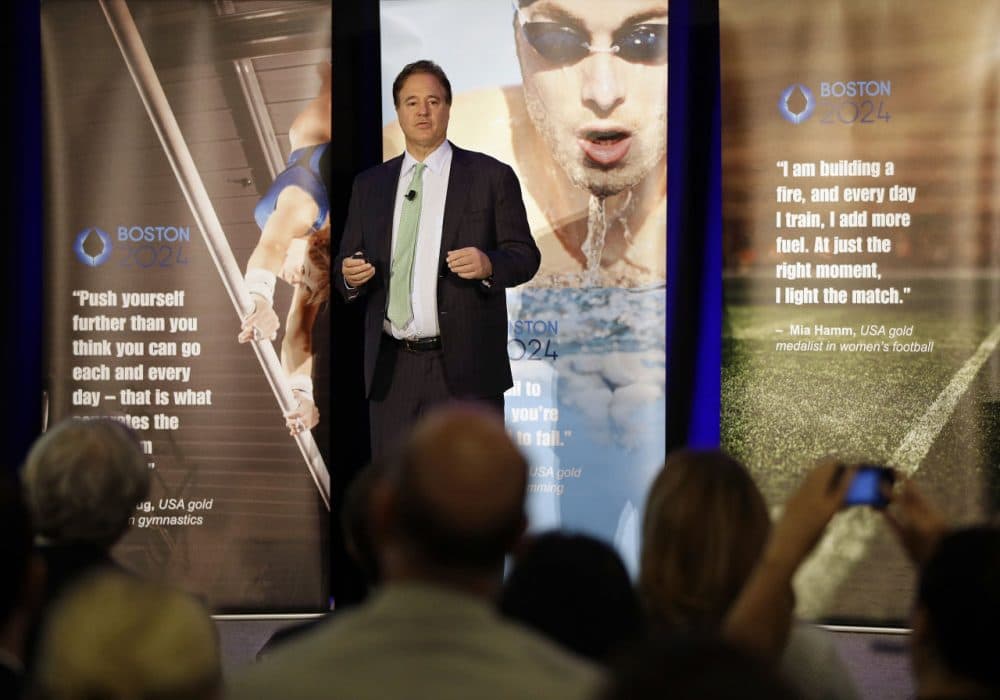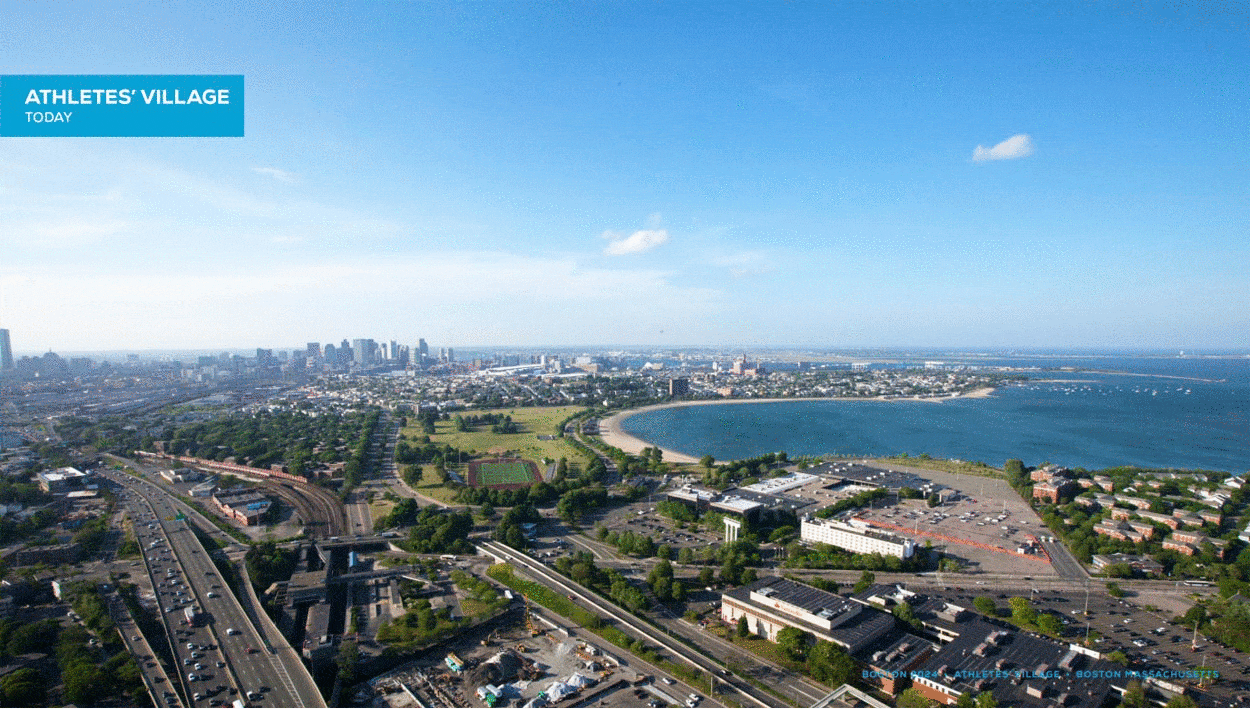Advertisement
With Bid 2.0, New Details At A Critical Juncture For Boston 2024
Resume
The new plan for hosting the 2024 Summer Olympics is out.
Dubbed “Bid 2.0,” the additional details from Boston 2024 have been released at a critical juncture for the organizing group. Gov. Charlie Baker set a June 30 deadline for more financial details, and the U.S. Olympic Committee will discuss Boston’s bid — which has been plagued by lukewarm public support — at a key board meeting Tuesday.
At the Boston Convention and Exhibition Center — where Boston 2024 outlined “Bid 1.0” back in January — the group on Monday detailed much more of its budget and its venue plan.
While some venues originally planned for Greater Boston have recently been moved to Worcester and western Massachusetts, Boston 2024 Chair Steve Pagliuca says the games would still largely be in and around Boston, and more public-transit-oriented than previous Summer Olympics.
"It’s still one of the most compact games ever, even though we’ve benefited the rest of the state," he said in the group's presentation.

One of the key proposals is a huge new commercial development for the area known as Widett Circle. That’s the site between South Boston and the South End where the 69,000-seat Olympic Stadium would be — but only temporarily. After the stadium is taken apart and trucked away, its footprint would anchor a 15-acre park, surrounded by 18 blocks of new construction with 4,000 housing units, hotels and retail.
Said Boston 2024 architect David Manfredi: "And this begins to transform 83 acres in the heart of the city that generates very little tax revenue today, to an area of substantial tax revenue, but also begins to make a place, make a destination in the city."
The other major development detailed Monday is around Columbia Point, where the Olympics Athletes' Village would create another 4,000 units of housing next to an improved the JFK/UMass Red Line station.

However, some venues have still not been sited, including the big aquatics center for swimming and diving events and the velodrome for cycling. The group is in discussions with possible partners. Other proposed venues have been scaled back. For instance, Manfredi says there are no longer any new permanent facilities planned for Boston’s Franklin Park.
"We learned from the neighborhood how important Franklin Park is, how important it is as parkland space," he said.
Along with details on specific venues came new numbers that would seek to keep the games in the black. Boston 2024 says it is conservatively budgeting $4.8 billion in revenue from the International Olympic Committee, ticket sales (about 9 million tickets predicted) and sponsorships. It’s budgeting nearly $4.6 billion in expenses.
So what if that doesn’t add up? Pagliuca says his group plans to take out the largest insurance plan in Olympic history. He says taxpayers should be protected from overruns.
"We have about $270 million in contingencies," he said. "We have insurances at every project level, and many types of insurances. And then an umbrella policy that covers the rest of it. So we see that risk as very minimal."
Boston 2024 is also suggesting that the city and state spend at least half a billion dollars in infrastructure and transportation improvements that are not currently planned, such as MBTA improvements. One example is Koscuziocko Circle by Columbia Point. Boston 2024 would like to see that redone, but that's not part of the plan; it's up to the city and state.
Not everyone is so sure that the financial risks are "very minimal." The opposition group No Boston Olympics says the organizing group’s only real insurer are the taxpayers of Massachusetts.
But Pagliua says people should look at the Bid 2.0 for themselves.
"I think this will allow us now to have the data to have a constructive discussion of what we think the risks and rewards of the games are," the chair said. "I think they’re a winner. I think this is a winning plan. I think that this will win ultimately versus all the other cities."
And that’s what Pagliuca and other leaders of Boston 2024 will tell the USOC on Tuesday in California, where they will present their revised plan at a board meeting. There’s a September deadline for the USOC to put Boston’s bid forward on the international stage.
This segment aired on June 29, 2015.
